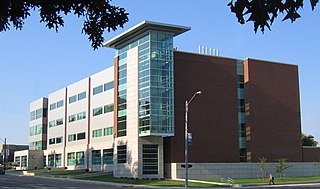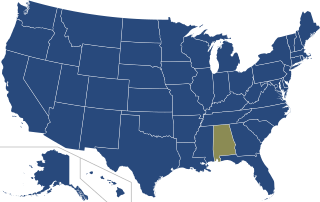
The British National Formulary (BNF) is a United Kingdom (UK) pharmaceutical reference book that contains a wide spectrum of information and advice on prescribing and pharmacology, along with specific facts and details about many medicines available on the UK National Health Service (NHS). Information within the BNF includes indication(s), contraindications, side effects, doses, legal classification, names and prices of available proprietary and generic formulations, and any other notable points. Though it is a national formulary, it nevertheless also includes entries for some medicines which are not available under the NHS, and must be prescribed and/or purchased privately. A symbol clearly denotes such drugs in their entry.

A pharmacist, also known as a chemist or a druggist, is a healthcare professional who dispenses medications and who provides advice on their safe use, with the aim of preventing disease and promoting public health. Pharmacists often serve as primary care providers in the community, and may offer other services such as health screenings and immunizations.

Pharmacy is the science and practice of discovering, producing, preparing, dispensing, reviewing and monitoring medications, aiming to ensure the safe, effective, and affordable use of medicines. It is a miscellaneous science as it links health sciences with pharmaceutical sciences and natural sciences. The professional practice is becoming more clinically oriented as most of the drugs are now manufactured by pharmaceutical industries. Based on the setting, pharmacy practice is either classified as community or institutional pharmacy. Providing direct patient care in the community of institutional pharmacies is considered clinical pharmacy.

The University of Tennessee Health Science Center (UTHSC) is a public medical school in Memphis, Tennessee. It includes the Colleges of Health Professions, Dentistry, Graduate Health Sciences, Medicine, Nursing, and Pharmacy. Since 1911, the University of Tennessee Health Science Center has educated nearly 57,000 health care professionals. As of 2010, U.S. News & World Report ranked the College of Pharmacy 17th among American pharmacy schools.
The Royal Pharmaceutical Society is the body responsible for the leadership and support of the pharmacy profession (pharmacists) within England, Scotland, and Wales. It was created along with the General Pharmaceutical Council (GPhC) in September 2010 when the previous Royal Pharmaceutical Society of Great Britain was split so that representative and regulatory functions of the pharmacy profession could be separated. Membership in the society is not a prerequisite for engaging in practice as a pharmacist within the United Kingdom. Its predecessor the Pharmaceutical Society of Great Britain was founded on 15 April 1841.
The Pharmaceutical Society of Australia (PSA) is a professional organisation of Australian pharmacists. PSA is the peak national body for pharmacists, representing all of the pharmacy profession in Australia, with approximately 18,000 members. PSA is the major provider of continuing professional development programmes for pharmacists in Australia. PSA also organises various pharmacy events including a national conference attended by over 1,200 delegates from around Australia and internationally. PSA publishes the Australian Pharmaceutical Formulary, the Australian Pharmacist journal, and various other pharmacy publications.
The International Pharmaceutical Federation or Fédération Internationale Pharmaceutique, abbreviated as FIP, is a nongovernmental organization (NGO) in official relations with the World Health Organization. It is the global body representing over four million pharmacists, pharmaceutical scientists and pharmaceutical educators through 153 national organisations, academic institutional members and individual members.
A consultant pharmacist is a pharmacist who works as a consultant providing expert advice on clinical pharmacy, academic pharmacy or practice, public health pharmacy, industrial pharmacy, community pharmacy or practice, pharmaceutical analysis etc., regarding the safe use and production of medications or on the provision of pharmaceutical services to medical institutions, hospitals, universities, research institutions, medical practices and individual patients.

Pharmaciens Sans Frontières Comité International (PSFCI) is the largest humanitarian association in the world specialized in the pharmaceutical sector. Founded in 1985 to retrieve unused drugs from chemists for use in developing countries, PSFCI extended its objectives to help the developing countries set up a local adapted health care system.

The Royal College of General Practitioners (RCGP) is the professional body for general (medical) practitioners in the United Kingdom. The RCGP represents and supports GPs on key issues including licensing, education, training, research and clinical standards. It is the largest of the medical royal colleges, with over 50,000 members. The RCGP was founded in 1952 in London, England and is a registered charity. Its motto is Cum Scientia Caritas – "Compassion [empowered] with Knowledge."
Masters degrees in pharmacy comprise both postgraduate and integrated master's programs in Pharmacy, the latter of which comprising both undergraduate and postgraduate coursework and typically taking four to five years to complete.

Clinical pharmacy is the branch of pharmacy in which clinical pharmacists provide direct patient care that optimizes the use of medication and promotes health, wellness, and disease prevention. Clinical pharmacists care for patients in all health care settings but the clinical pharmacy movement initially began inside hospitals and clinics. Clinical pharmacists often work in collaboration with physicians, physician assistants, nurse practitioners, and other healthcare professionals. Clinical pharmacists can enter into a formal collaborative practice agreement with another healthcare provider, generally one or more physicians, that allows pharmacists to prescribe medications and order laboratory tests.
Pharmacy residency is education a pharmacist can pursue beyond the degree required for licensing as a pharmacist. A pharmacy residency program allows for the implementation of skill set and knowledge acquired in pharmacy school through interaction with the public either in a hospital setting or community practice. The program is done over a span of about 2yrs after graduation from pharmacy school and licensure as a pharmacist. Pharmacy residency helps improve the resume of a pharmacist so as to increase chances of obtaining employment outside community practice. A 2022 review suggested that there is sufficient evidence that residency develops key competencies for junior pharmacists.

The Campbell University College of Pharmacy & Health Sciences is an American pharmacy school founded in 1985 by Dean Ronald Maddox and located in Buies Creek, North Carolina. The College is one of seven schools that compose Campbell University. In 2009, the school's name was changed to Campbell University College of Pharmacy and Health Sciences.
Pharmacy in China involves the activities engaged in the preparation, standardization and dispensing of drugs, and its scope includes the cultivation of plants that are used as drugs, the synthesis of chemical compounds of medicinal value, and the analysis of medicinal agents. Pharmacists in China are responsible for the preparation of the dosage forms of drugs, such as tablets, capsules, and sterile solutions for injection. They compound physicians', dentists', and veterinarians' prescriptions for drugs. Pharmacological activities are also closely related to pharmacy in China.
The basic requirement for pharmacists to be considered for registration is often an undergraduate or postgraduate pharmacy degree from a recognized university. In many countries, this involves a four- or five-year course to attain a bachelor of pharmacy or master of pharmacy degree.

The International Pharmaceutical Students' Federation (IPSF) is a non-governmental, non-political and non-religious organisation that represents pharmaceutical students, pharmacy students and recent graduates from all over the world. It was founded in 1949 and it is the oldest faculty-based student organisation. IPSF represents over 500,000 individuals in more than 100 countries with 127 different representative pharmacy student member organisations.
Pharmacy in the United Kingdom has been an integral part of the National Health Service since it was established in 1948. Unlike the rest of the NHS, pharmacies are largely privately provided apart from those in hospitals, and even these are now often privately run.

A collaborative practice agreement (CPA) is a legal document in the United States that establishes a legal relationship between clinical pharmacists and collaborating physicians that allows for pharmacists to participate in collaborative drug therapy management (CDTM).
The Medication Appropriateness Tool for Comorbid Health conditions during Dementia (MATCH-D) criteria supports clinicians to manage medication use specifically for people with dementia without focusing only on the management of the dementia itself.









